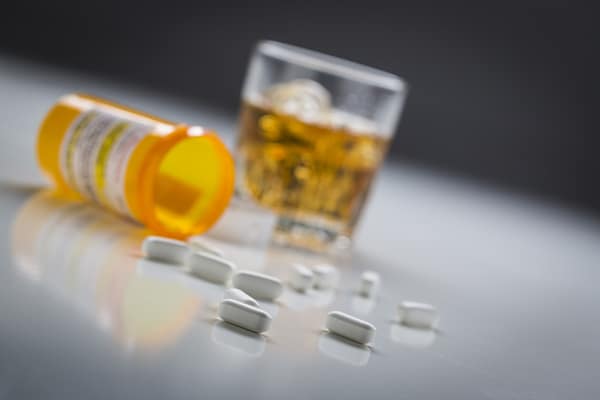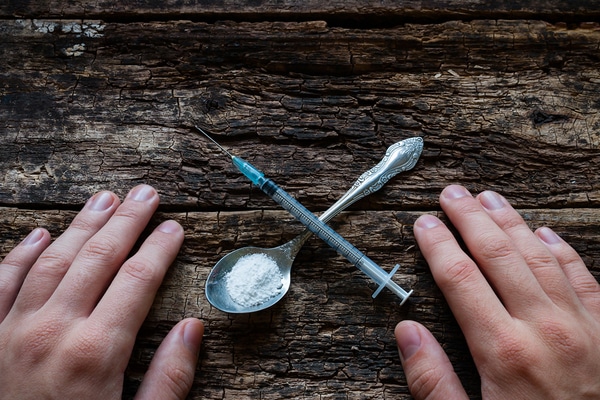Addiction is an elusive monster, and 5 addictive drugs in particular just make matters worse. Difficult to predict, hard to measure, and altogether harrowing to fight, addiction is both a societal and personal plague.
Experts argue over what causes addiction, though some commonalities suggest that addiction stems from both internal and external forces. TheFix.com notes:
“Many factors determine whether you’ll become addicted to a drug: your genetic makeup, social history, the drugs your friends take, how much money you make. But the chemical makeup of drugs guarantees that certain drugs are more addictive than others.”
Looking, however, beyond the chemical makeup of drugs, there are a number of additional factors by which a drug’s potential for harm can be measured. MedicalDaily.com observes:
“Some researchers place more weight on chemical effects, claiming a drug that extensively activates the brain’s dopamine system is more addictive than other substances. Consistently stimulating the dopamine system can decrease sensitivity, prompting users to take more of the substance each time to experience a high. Others say the blame is on habit and behavior, and advocate that the right way to treat addiction is to change patients’ feelings, relationships, and behavior rather than toning down the firing neurons in their brains.”
5 Addictive Drugs
Looking at both the chemical composition and the societal effects of different drugs helps researchers arrive at a short list of the most dangerous, addictive drugs available. The majority of researchers agree on the following drugs as being ones to avoid if you want to steer clear of addiction:
Heroin
Long considered the worst of the worst, heroin causes all the effects most related to the horror that is an addiction. Heroin works by affecting opioid receptors throughout the body and mimicking endorphins, which reduces pain and induces pleasure. Heroin, in effect, rewires your brain so that you crave it constantly.
DrugAbuse.com reports that studies have shown that just one dose of heroin can put people on the fast track to addiction. Nearly one-fourth of people who try heroin will become addicted to it. Add to that the fact that it is relatively cheap, withdrawal symptoms can be brutal, and its use has doubled for adults between the ages of 18 and 24 in the last decade, and you can see why heroin consistently tops the charts of drugs to avoid.
Crack Cocaine
Cocaine addiction of any kind is hard to handle, but crack cocaine is more addictive than its powdered cousin. Crack produces a quicker, more intense high than cocaine. The rush does not last long, however, meaning that crack users are more likely to crave more of the drug more often and more violently than some other drugs. Withdrawal from crack can cause severe depression, extreme agitation, and insomnia. Like its powder counterpart, crack cocaine hijacks your brain, teaching it to crave more and more.
Crystal Meth
DrugAbuse.com explains the twofold chemical tsunami that crystal meth causes in the brain:
“Crystal meth acts on the dopamine level in the brain but provides an additional touch of mimicking norepinephrine. The result? Neurons release more of both while training your brain to need more in order to survive. The hangover and withdrawals last days and can break down a person mentally and physically. Addicts suffer psychosis, hallucinations, memory loss, severe depression, and sometimes suicide.”
Amphetamines
Though not as devastating as crystal meth, amphetamines act on same brain pathways, leading to addiction quickly. Tolerance for amphetamines grows rapidly, meaning that the user has to have more and more of the drug to achieve the same resulting high. Amphetamines can cause psychotic episodes and brutal withdrawal symptoms.

Some prescription drugs can be just as addictive as illegal drugs.
Benzodiazepines
Medications such as Valium, Klonopin, and Xanax fall into this category of drugs. These drugs increase the efficiency of a brain chemical called GABA, which decreases anxiety. When used inappropriately, however, they are highly addictive and can lead users into a downward spiral of serious addiction. Sadly, misuse of these drugs often exacerbates the original condition for which they were prescribed. Addiction can occur in as little as six weeks but may take months or even years to overcome.
Help for Addiction is Available
If you or someone you know is struggling with addiction to one or more of these deadly drugs, help is available. Harris House works with recovering addicts to provide the support and resources needed to successfully battle addiction at its source. Contact us today to discuss how we can help!








